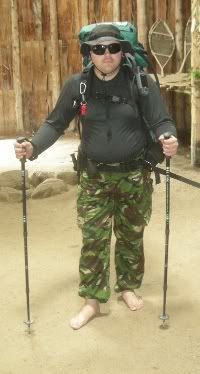Thousands of people around the globe are affected by a form of depression which has been brought about by modern times.
The disorder, known as Weekend Affective Disorder or W.A.D. is found in patients who are forced by their job to work one or more days of the weekend. Weekend Affective Disorder, a term coined by Doctor Richard Oaks of the University of Belford while studying forms of depression seen in the workplace. "We are seeing more and more of this disorder" states Oaks.
"I saw all my friends going out and having fun on the weekends" says David Smith, a participant in a study of WAD at the University of Belford. "I like my job, but working weekends was starting to effect my entire well being" Smith goes on to say. "It was like I started to feel a deep sense of gloom and doom coming over me as Friday approached."
Symptoms of WAD include a genuine fear of working on Saturday or Sunday, restless sleep on or around the weekends, reduced performance at work during the weekend shifts. People who are experience more severe forms of WAD may also suffer from anxiety attacks which occur when thinking of working on the weekend.
WAD is a serious condition which is often misdiagnosed and has even caused the loss of careers for individuals who are affected by it. "We noticed one of our employees constantly rang in sick for his Saturday and Sunday shift" stated Charlene Bennett, a supervisor at W1 Office, one of the largest outsourcing call centres in the United Kingdom. "After the employee was formally reprimanded for persistent ringing in sick, we learned he was literally afraid to come into work on the weekends." Richard Doleman was then sent to the University of Liverpool, and it was learned that he was experiencing severe anxiety attacks, and lack of sleep on Fridays which led to him being unable to function properly to fulfill his duties as a representative of the company.
Doctors at the university narrowed his condition down to flaring up on Thursdays and Fridays. Doleman was then given weekends off for a period of one month to see if his condition improved. "It was like a weight had been lifted off me" Doleman said in the weeks to follow. "I felt like I could breathe again, I could go clubbing Friday night and have a good time, go to Church on Sundays and still hold down my job" In the months to follow, Dolemans performance at work was significantly better, and he has not missed a day of work in over six months.
"This isn't simply not liking to work on the weekends" Oakes states. "it goes deep into the psyche." Normally the largest reason for the anxiety attacks and restless sleep with W.A.D. are caused by the patient thinking of how much he or she is missing while being at work while everyone else is having what they perceive as fun. "It's not just that Mr. Smith doesn't like to work weekends, it's that working weekends has started to interfere with his entire well being" Oakes goes on to explain. "When we loose the ability to visit with our friends, go to the mall, have a drink at the pub, and other simple activities we take for granted on a daily basis, it effects some people so profoundly that it makes it difficult for them to function"
What's worse than the disorder itself is it's difficulty in recognising it. Often times doctors fail to narrow the symptoms down to only happening near the weekend itself. "Just putting someone on medication only helps part of the problem" states Oakes. "The real issue is to get the patient into a situation where he or she can have the weekends off, and go back to living a normal life".
When asked to describe his life before he was diagnosed with W.A.D., David Smith shakes his head with eyes lowered and says "dark times




